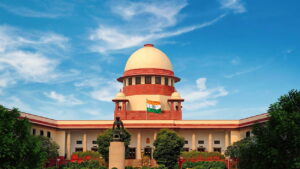Medical negligence has become one of the most pressing issues in India’s healthcare and legal landscape. Every year, thousands of patients approach courts claiming they have suffered due to errors in diagnosis, surgical mishaps, lack of timely treatment, or careless handling in hospitals. According to recent estimates, India now registers around 5.2 million medical malpractice cases annually. Litigation in this field has gone up by almost 400 percent compared to a few years ago, making medical negligence one of the fastest-growing categories of legal disputes.
Despite this surge, justice in these cases remains painfully slow and often inconsistent. Patients and their families wait years for compensation, while doctors live under the shadow of accusations that may or may not be substantiated. This imbalance has led to growing calls for a new model of justice: specialized medical tribunals dedicated to handling malpractice cases.
Why the Current System Is Struggling
At present, victims of medical negligence have multiple legal remedies. They can approach consumer courts under the Consumer Protection Act, file civil claims for damages, or even pursue criminal proceedings under the Bharatiya Nyaya Sanhita for grossly negligent acts that result in serious harm or death. Professional misconduct cases also fall within the jurisdiction of the National Medical Commission (NMC).
On paper, this seems like a comprehensive framework. In practice, however, each of these avenues suffers from limitations. Consumer forums and civil courts are overburdened and take years to deliver judgments. Criminal prosecution requires proving “gross negligence” beyond reasonable doubt, a standard that is notoriously difficult to meet without clear medical records and credible expert witnesses. The NMC, meanwhile, has limited enforcement power, and disciplinary measures such as suspension or cancellation of licenses are rare.
Perhaps the biggest drawback of the current system is the lack of medical expertise within the judiciary. Judges trained in law are often required to evaluate complex medical procedures and determine whether a doctor acted negligently. They must rely heavily on external experts, whose opinions can differ widely or be influenced by bias. This creates unpredictability and inconsistency in outcomes.
What Specialized Medical Tribunals Could Offer
Specialized tribunals for medical negligence would change the way these disputes are addressed. Instead of scattering cases across consumer forums, civil courts, and regulatory bodies, tribunals would consolidate them into a single, fast-track system. They would be staffed not only by judicial officers but also by medical professionals who understand the technical aspects of healthcare. This blend of legal and medical expertise would ensure that cases are assessed with a deeper understanding of both the law and the science involved.
The advantages are clear. Patients would benefit from faster resolution of their claims, sparing them the emotional and financial drain of prolonged litigation. Doctors, too, would gain from a forum that distinguishes genuine negligence from unavoidable complications or errors of judgment. By providing a fairer process, tribunals could also reduce the tendency among doctors to practice “defensive medicine”—a practice where they order unnecessary tests or avoid high-risk treatments purely to shield themselves from potential lawsuits.
Why India Needs a Special Tribunal for Medical Negligence and Malpractice Now
The sheer volume of medical negligence litigation in India makes the case for tribunals urgent. With millions of complaints filed annually, ordinary courts are overwhelmed. Victims of negligence who seek compensation often find themselves waiting a decade or more for final relief. This not only undermines faith in the legal system but also deepens the trauma of families already struggling with loss or disability caused by medical errors.
Tribunals would also bring uniformity. At present, the compensation awarded in negligence cases varies wildly from one court to another. Some victims receive token amounts while others are awarded crores of rupees, depending on the bench and the evidence presented. A specialized forum could establish clearer benchmarks for compensation, bringing consistency and predictability into the system.
Equally important is the need to balance patient rights with protection for medical professionals. Doctors are understandably anxious about frivolous lawsuits that can damage reputations built over decades. Specialized tribunals, by involving medical experts in the decision-making process, could set higher thresholds for establishing negligence and filter out baseless claims early in the process.
The Role of Healthcare Lawyers
Even with specialised tribunals, the importance of medical negligence lawyers cannot be overstated. These cases are among the most technical in the legal field, requiring a unique combination of legal acumen and medical understanding. Lawyers specializing in this area know how to obtain and interpret medical records, consult credible experts, and present evidence in a way that aligns with both medical standards and legal requirements.
For patients, medical negligence lawyers serve as guides through a highly complex process, ensuring their claims are heard and their rights protected. For doctors facing allegations, these lawyers play an equally crucial role in mounting a defense, challenging unreliable expert opinions, and safeguarding reputations. Specialized tribunals would, in fact, give such lawyers a stronger platform to argue cases effectively, as the forum itself would be better equipped to appreciate their arguments.
Addressing Concerns About Tribunals
Some critics worry that introducing medical tribunals could create another layer of bureaucracy or lead to bias if they are dominated by medical professionals. These concerns are valid but not insurmountable. A well-designed tribunal system would be chaired by judicial officers, with medical experts serving as advisors rather than decision-makers. Transparent appointment processes and a right of appeal to higher courts would ensure fairness and accountability.
Others fear that tribunals might dilute patients’ rights by capping compensation or discouraging litigation. On the contrary, if structured well, they would make the process more accessible, affordable, and faster for patients. Far from replacing the judiciary, tribunals would complement it, relieving regular courts of a heavy caseload while offering specialized justice in a highly technical field.
The Way Forward
India already has models it can learn from. Countries like the United Kingdom and Australia have experimented with special medical boards and tribunals that evaluate negligence cases with the help of expert panels. New Zealand goes a step further by operating a no-fault compensation system for medical injuries, ensuring that victims are compensated without long battles over blame.
India’s needs are unique, but it can adapt elements from these systems. Specialized tribunals could initially be set up as pilot projects in states with the highest volume of malpractice litigation, gradually expanding nationwide. They could operate under strict timelines, say six months to one year for disposal of cases, and follow simplified procedures that cut down delays without compromising fairness.
Conclusion
Medical negligence is a painful reality that affects both patients and doctors. For patients, it represents a breach of trust and, often, a lifelong struggle with disability, trauma, or financial hardship. For doctors, it represents the fear of reputational loss and legal entanglement in a profession where not every outcome is within their control.
India’s current system, while comprehensive on paper, is ill-equipped to deliver timely and consistent justice in this complex area. Specialized medical tribunals offer a practical solution, combining legal authority with medical expertise, speeding up decisions, and ensuring fairness for both sides.
With millions of malpractice cases piling up each year, the time has come for policymakers to seriously consider this reform. For patients, tribunals could mean faster and fairer compensation. For doctors, they could mean protection from harassment and clarity in standards of care. And for the system as a whole, they would mean restoring faith in justice and strengthening trust in healthcare.
Until then, the role of medical negligence lawyers remains indispensable. They will continue to guide patients through complicated processes and defend doctors against unfounded claims. But with specialized tribunals, their work could become more impactful, paving the way for a legal system that finally meets the demands of one of the most sensitive areas of law and medicine.






